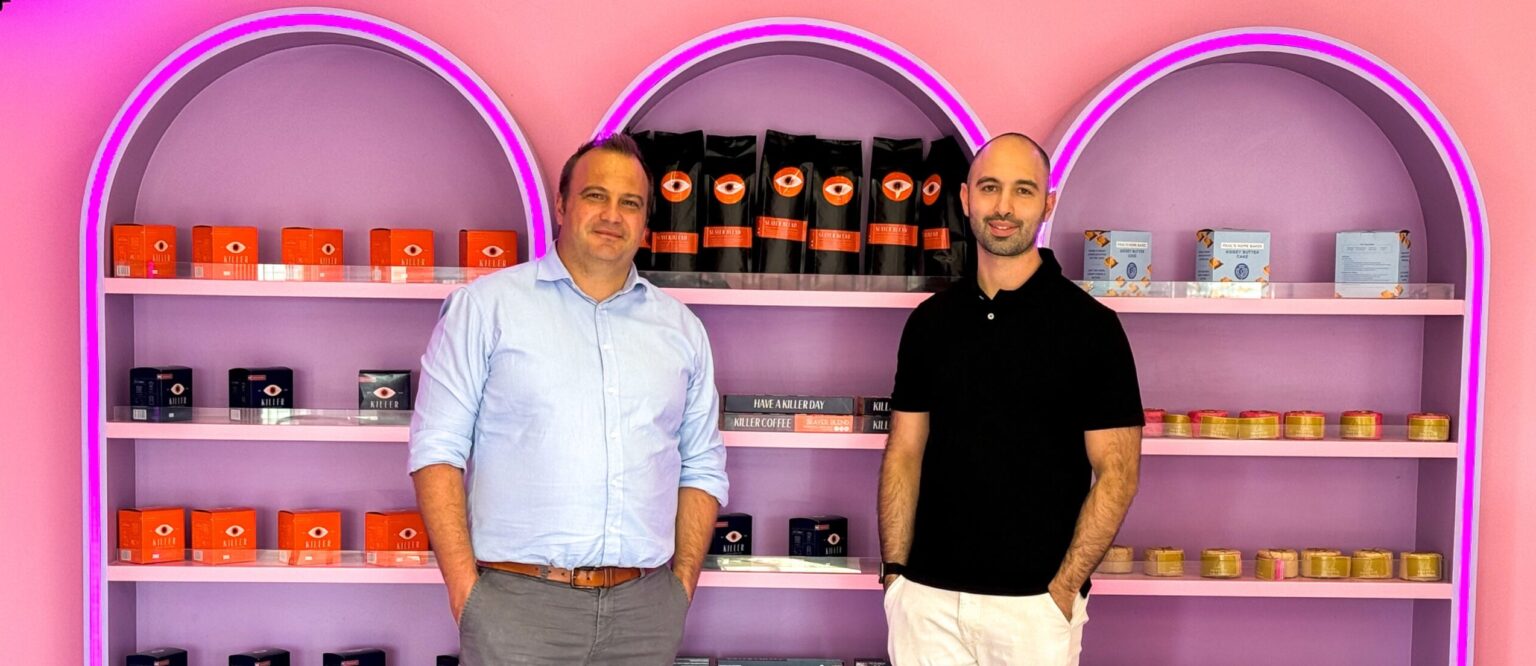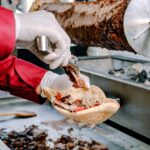How do you keep 20 000 litres of artisanal ice cream frozen during a load shedding crisis? This is the headache faced by Paul Ballen, founder of Paul’s Homemade Ice Cream, when it came to their new flagship dessert cafe, located in Parkhurst, Johannesburg. With Eskom’s unreliability and the unsustainability of a diesel generator not aligning with the brand’s ethos, the company turned to solar-powered energy specialist Metrowatt for a solution.
Chilling Challenges
Ice cream is specific when it comes to refrigeration, having to be kept at an ambient temperature of -20℃ to ensure the perfect scoop. For this reason, Paul’s Homemade Ice Cream makes use of state-of-the-art display freezers. These are forward-ventilating and opened on a regular basis, requiring a consistent power supply to keep cold. Moreover, to help with temperature regulation, a robust air-conditioning system is employed to maintain a comfortable store temperature in the dessert cafe. These were some of the challenges Metrowatt were faced with when they designed Paul’s Homemade Ice Cream solar solution, compounded by shade on multiple parts of the roof where the panels needed to go.
Metrowatt’s team of solar specialists was up to the challenge, keen to ensure Paul’s Homemade Ice Cream’s high standard of daily requirements with the effectiveness and durability of a long-term solar solution. A unique dual inverter solution was decided upon, with a 50kW single-phase Sunsynk inverter and a12kW Huawei three-phase inverter installed. This supports the use of optimisers for panels that experience significant shade. This means the solar panels will work even when skies are overcast.
The system produces a combined total of 3021kWh back-up power per month, which equates to an average yield of 4.4kWh per hour[7]. This means the backup is sufficient to support the store needs without using solar power.
Solar Yields the Perfect Scoop
For Paul Ballen, Metrowatt’s solar solution has been a godsend. “When you produce a frozen product, a regulated cold chain is critical. Simply put, an ice-cream cafe cannot survive without the power to refrigerate. With Metrowatt’s solution, our stress associated with load shedding has disappeared and we are now able to serve our artisanal ice-cream at exactly the right temperature to customers.”
David Neale, CEO of Metrowatt believes more businesses are now turning towards solar, not only because of load shedding and the subsequent breakdowns of substations, but also because of the continued rise of the cost of electricity.
Neale notes converting Paul’s Homemade Ice Cream to solar presented a unique set of challenges. “For one, the exact refrigeration requirements of the ice-cream and the temperature control of the shop meant that a notable supply of power would be required, to be ensured during load shedding even when it was overcast. Secondly, like many businesses and houses around leafy suburbs such as Parkhurst, a solar solution must contend with interrupted sun coverage due to shade,” Neale says. “Our team thrives on solving these problems, with the eventual turn-key solution for Paul’s Homemade Ice Cream perfectly aligning with their power requirements and our mission of making sustainable energy solutions accessible to both homeowners and businesses.”
Rent to Own on the Path to Sustainability
For Paul’s Homemade Ice Cream, settling on Metrowatt’s rent-to-own model made the transition to solar feasible, negating the need for immediate capital expenditure.
“Considering the cost of outright purchase for a 49-panel system required to power the store would be otherwise prohibitive. “For us, cheaper alternatives, such as a diesel generator, was simply out of the question since the noise and smell clashed with the purity and clean image of the brand. Diesel costs also become prohibitive when the generator is required for extended periods of time. Solar is a clean, renewable and a sustainable solution, perfect for an artisanal ice-cream brand such as ours,” Ballen states.
Indeed, from a carbon emissions perspective, Paul’s Homemade Ice Cream has reduced their carbon footprint by approximately 3.2 tons as per the Eskom Carbon Emissions ratio of 1,06 kg/kWh in 2021, thus fulfilling Paul’s vision of driving a more environmentally friendly business without negating business output.
The generating capacity of Metrowatt’s solution will also be able to take care of the future requirements, with Ballen envisioning the flagship Parkhurst dessert cafe not just as an ice cream haven but a lifestyle destination with covered outdoor seating for coffee enthusiasts and ice cream aficionados.
Neale believes Metrowatt’s collaboration with Paul’s Homemade Ice Cream highlights the practicality and efficiency of solar solutions in energising commercial enterprises. “This partnership between Paul’s Homemade Ice Cream and Metrowatt is more than a delightful collaboration, it’s a statement that indulgence can coexist with sustainability,” he concludes.
For more on the Paul’s Homemade IceCream and Metrowatt partnership visit here








